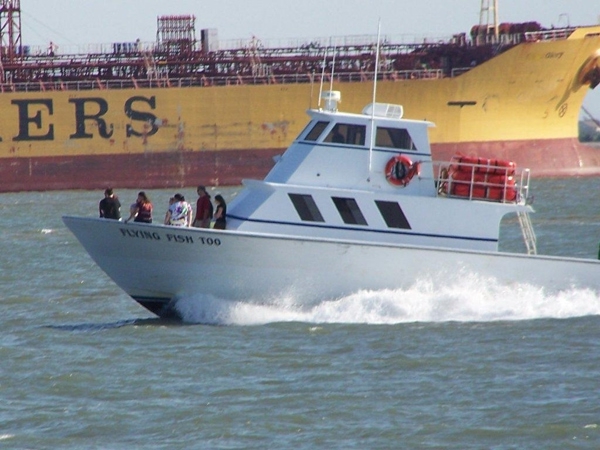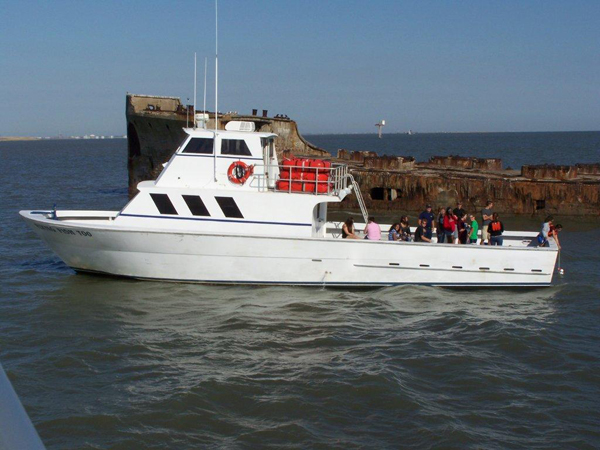The Ocean is our classroom
TweetDecember 7, 2011

For many years, TAMUG has touted the ocean as its classroom. And, that claim is more than a bragging right. It’s fact. In addition to ocean research studies and maritime training activities across the globe, TAMUG students are accessing on-the-water education in what some might call their own ship channel.
Captain Allan Post, director of TAMUG’s Waterfront Operations, describes the relevance of this unique form of academic training.
“Our students have access to floating classrooms adjacent to our island campus,” he says. “These ‘wave’ classrooms offer experiences that few universities provide. They enhance academic studies and prepare our graduates for great ocean careers.”
According to Post, TAMUG is developing the best waterfront academic training on the Gulf Coast, and the floating classroom program is further evidence of this. He says that floating classrooms afford students opportunities to actually study in the environment that directly relates to the workings of the maritime fields, technical trades or marine sciences.
“Students actually benefit from waterfront classrooms, because of hands-on practical training that enhances their academic studies,” Post says. “Offering an increased number of floating classrooms provides greater opportunities for students to participate in hands-on learning in their field of study outside their traditional classrooms.”
 Using a mix of education, training and recreational vessels provides floating classrooms that can be available seven-days-a-week throughout the year. Professors now have more options to board TAMUG boats with their students and conduct research projects, labs, and other training that enhances traditional classroom study.
Using a mix of education, training and recreational vessels provides floating classrooms that can be available seven-days-a-week throughout the year. Professors now have more options to board TAMUG boats with their students and conduct research projects, labs, and other training that enhances traditional classroom study.
Post points to an increase in the number of academically-related boat trips taken through Waterfront Operations since last year.
“We’ve increased our number of boat missions by nearly 150 percent in one year,” he says. “Where we carried out 50 missions before, we’re now completing 124 outings. More vessels will be needed to accommodate this growing demand. By the end of this academic year, we hope to carry 5,000 students on floating classrooms.”
While endeavoring to create the best program for academic training on the water, the floating classroom program has generated additional benefits.
TAMUG Waterfront Operations has obtained funding to operate newer, larger vessels for academic teaching and professional mariner training. These new vessels will accommodate full class sections. Add to this a new safety program, and classrooms are students are secure on the water.
For more information about Waterfront classes, contact Captain Allan Post at posta@tamug.edu**TAMUG**
###